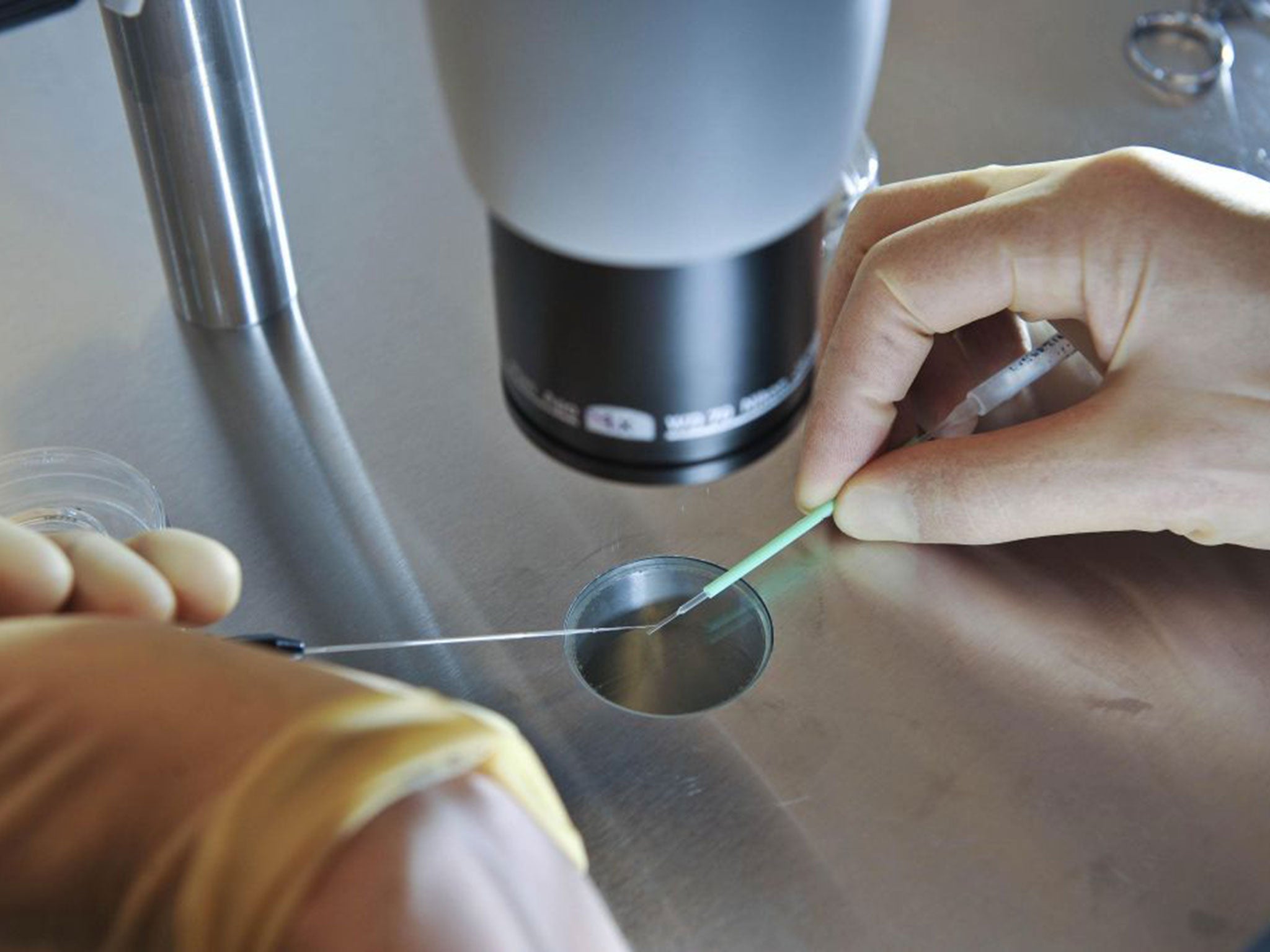Within 30 years we will no longer use sex to procreate, says Stanford professor
Hank Greely believes the reproductive process will commence with parents choosing from a range of embryos created in a lab with their DNA

Your support helps us to tell the story
From reproductive rights to climate change to Big Tech, The Independent is on the ground when the story is developing. Whether it's investigating the financials of Elon Musk's pro-Trump PAC or producing our latest documentary, 'The A Word', which shines a light on the American women fighting for reproductive rights, we know how important it is to parse out the facts from the messaging.
At such a critical moment in US history, we need reporters on the ground. Your donation allows us to keep sending journalists to speak to both sides of the story.
The Independent is trusted by Americans across the entire political spectrum. And unlike many other quality news outlets, we choose not to lock Americans out of our reporting and analysis with paywalls. We believe quality journalism should be available to everyone, paid for by those who can afford it.
Your support makes all the difference.Within three decades people will no longer be having sex to procreate, a professor from Stanford University has said.
Hank Greely, the director of Stanford’s Law School’s Center for Law and the Biosciences, believes the reproductive process will begin with parents choosing from a range of embryos created in a lab with their DNA.
Although this can already take place, Mr Greely believes it will become far cheaper to do so and couples will opt for this method to prevent diseases.
The process involves taking a female skin sample to create stem cells, which is then used to create eggs.
These eggs are then fertilised with sperm cells, resulting in a selection of embryos.
Screening of the embryos would highlight any potential diseases and the Stanford professor believes the process will get to a point where parents can also potentially have the ability to choose eye or hair colour.
“I think one of the hardest things about this will be all the divorces that come about when she wants embryo number 15 and he wants embryo number 64,” Mr Greely said at Aspen Ideas Festive, Tribune reported.
“I think the decision making will be a real challenge for people. How do you weigh a slightly higher chance of diabetes with slightly lower risk of schizophrenia against better musical ability and a much lower risk of colon cancer? Good luck.”
Mr Greely argues that this method of procreation would be cost efficient due to the savings that would be made on healthcare.
He argues that if certain diseases can be avoided any expenditure on this method would be offset by reduced costs on potential treatments.
Join our commenting forum
Join thought-provoking conversations, follow other Independent readers and see their replies
Comments